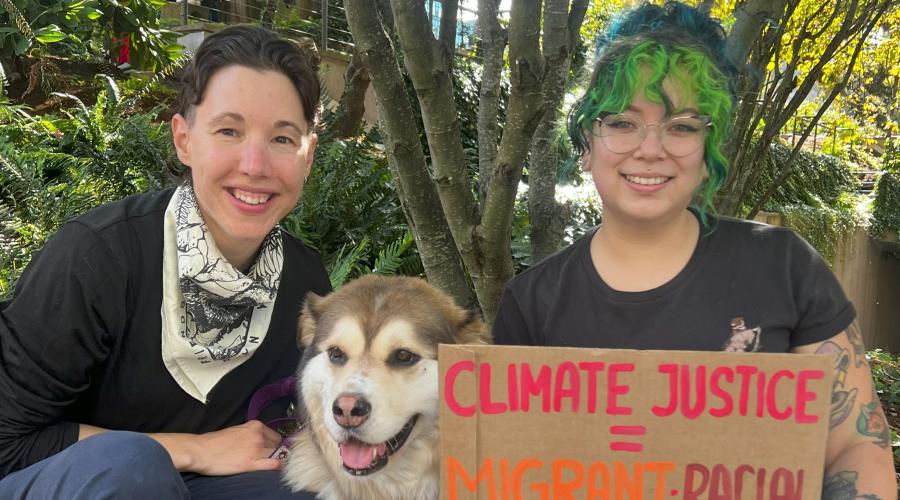
We recommend that all interested applicants contact EDRF staff before filling out an application form. If we determine that you meet the criteria and are eligible to apply for an EDRF grant, we will help you determine your funding stage and invite you to submit an application. We maintain a roster of lawyers willing to take on EDRF cases and can provide referrals upon request.
We offer two types of grants:
Stage 1 Grant – A smaller, one-time grant focused on legal advice and representation to take strategic action to address an important community-based environmental issue. This grant may also be used to obtain a legal opinion on whether a more in-depth legal challenge has the potential for success. In Stage 1, you may apply for a grant of up to $3,600.
Stage 2 Grant – A larger grant for applicants with a demonstrated ability to use legal tools effectively as part of a broader campaign, and have a larger legal project (often a legal challenge or appeal). In Stage 2, you may apply for up to $17,500 at a time. Grant recipients with the ability to run a broader community-based campaign, including raising funds towards a client contribution towards their legal fees, will be given priority. For more information on developing a campaign around your issue, check out this webinar.
We can provide funding of up to a total of $35,000 to any one environmental case.
Please see the application form available for download at the bottom of this page in Microsoft Word format. This application form can be used for both Stage 1 and Stage 2 grant applications. The form is also available in the dyslexia-friendly Dyslexie font below.
For more information, please contact:
legalaid@wcel.org
604-684-7378 ext. 229
(or toll-free at 1-800-330-9235 ext. 229)
What we fund
EDRF funding can be used only to fund the fees and approved disbursements of lawyers and experts. The EDRF reimburses fees of lawyers and experts at $116/hour. Please note that the EDRF expects that lawyers taking on public interest environmental cases will offer a pro bono discount on their regular hourly rate for services according to a sliding scale. For full details, please refer to the application form.
When to apply
Applications are reviewed by the EDRF Management Committee on a periodic basis. Our upcoming application deadlines are:
- June 12, 2024
- August 21, 2024
- November 13, 2024
- January 29, 2025
- March 26, 2025
Please contact us if you are facing urgent timelines. It may be possible for the EDRF to review your application on an emergency basis.
How should I submit my application?
Please download the application form at the bottom of this page and submit by email to legalaid@wcel.org. We can be reached at 1-800-330-WCEL (toll-free in BC). Please refer to the checklist on the application form to ensure your application is complete.
What support is available for the application process?
If you would like to apply to the EDRF but need support with your application, as part of our commitment to environmental justice, decolonization, and equity, we are available to support you through the application process. Please contact our Access to Justice team if you would like support with developing ideas, writing your application, or if you have any questions.
We also encourage EDRF applicants to contact us at if you have a need for any assistance or disability accommodations throughout the application process.
For support with your application, please contact the Access to Justice team at:
legalaid@wcel.org
604-684-7378 ext. 229
(or toll-free at 1-800-330-9235 ext. 229)
Our team is able to:
- Accept application forms and reports in alternative formats, including audio and video;
- Accept applications written by hand and photographed instead of PDF;
- Accept applications written in point form;
- Offer the form in accessible formats:
- Audio-recorded version of the questions;
- Provide proposal assistance by discussing and helping to develop your case over the phone; and
- Incorporate additional support for translation services.
If you experience difficulty with technology and/or written word, please contact us by phone so we can determine how best to support your application.
New processes were implemented in 2021 to make our legal services more accessible to communities in BC who are disproportionately impacted by environmental issues, including racialized and Indigenous communities, youth, and low- income or marginalize communities. We continue to work to eliminate barriers that these communities may face when asserting their rights and protecting the environment. If you see an area where we can improve and make our legal services more accessible to these communities, please let us know how we can do better.